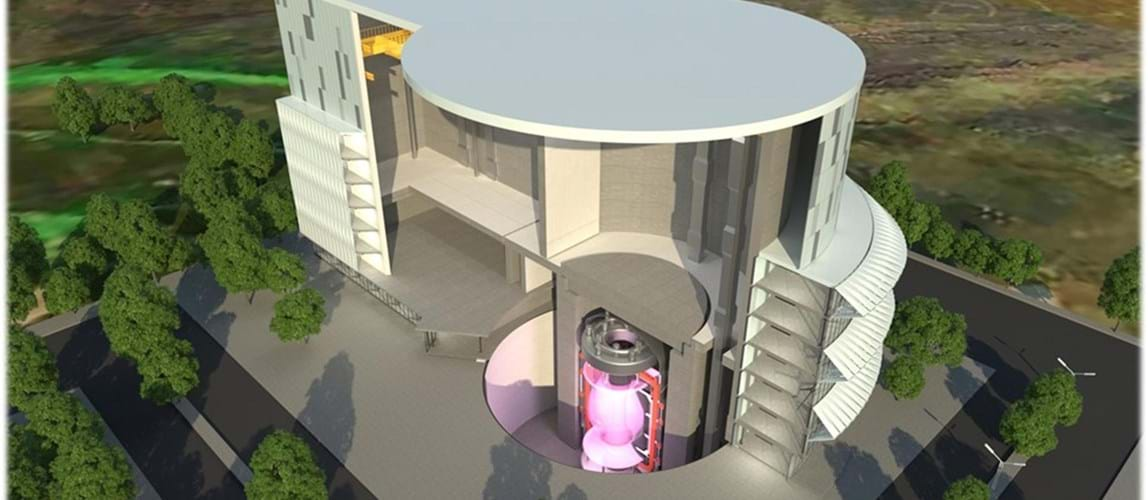Thames Valley (UK)
Webinar: Overview of the Fusion Power Plant

- Date From 20th April 2021
- Date To 20th April 2021
- Price Free of charge, open to all.
- Location Online: 17:00 BST. Duration: 1.5 hours.
Overview
A virtual tour of the UK’s national fusion research laboratory and the operational tokamaks it contains.
The presentation will contain:
- an overview of fusion
- tour of Joint European Torus (JET) and its fuel management system
- tour of Mega Ampere Spherical Tokamak (MAST)
- introduction to Spherical Tokamak for Energy Production (STEP) which is an ambitious programme to design and build a prototype fusion power plant, targeting operations around 2040.
Presenters
Chris Clements
Chris is a Chartered chemical engineering with substantial experience designing, building and commissioning first of a kind equipment and pilot plant facilities. Chris is the lead process engineer for STEPs power infrastructure work package.
Ezzat Nasr
Ezzat is a Chartered chemical engineer with a background in radioactive waste handling systems and nuclear ventilation plant design. Ezzat specialises in design authority provision on nuclear licensed sites and is experienced in delivering projects and commissioning plant in hazardous environments. Ezzat works on the STEP (Spherical Tokamak for Energy Production) programme and leads on engaging with stakeholders to help shape concept design requirements.
Jack Acres
Jack is a Chartered engineer with a breadth of experience in multifaceted projects within R&D environments. Jack’s role in UKAEA is largely based in the power infrastructure pillar of the STEP project. Jack has been focused on designing and modelling the power generation system linked to STEP’s nuclear fusion reactor. He has also evaluated parasitic load estimates associated with the fusion reactor. This modelling work, will ensure that the final STEP concept will achieve its primary goal: net power to the grid.
Tamsin Jackson
Tamsin is a Chartered chemical engineer, who has worked on tritium and fusion fuel cycle development at the UK Atomic Energy Authority for 5 years, after a career change from food process development. During that time she has lead tritium and fuel cycle projects for both publicly funded and commercial fusion endeavours, including the Joint European Torus, ITER, and Eurofusion DEMO.
She is currently leading shifts as an operations engineer during the ongoing JET tritium campaign, and providing tritium engineering expertise to the design of the new research facility under construction at the UKAEA to house the Hydrogen-3 Advanced Technology department.
The material presented in this webinar has not been peer-reviewed. Any opinions are the presenters' own and do not necessarily represent those of IChemE or the Thames Valley Member Group. The information is given in good faith but without any liability on the part of IChemE.
Agenda
Introduction
- To UKAEA and location (Culham Oxfordshire)
- Why are we conducting this research?
a) Changing the energy mix reducing dependence on CO2 emitting technology, base load. - Difference between fusion and fission
a) Operating conditions necessary for fusion (the sun 15 millionºC, pressure 250 billion bar)
b) On earth 150 millionºC, plasma pressure ~ atmospheric. - Fusion roadmap (ITER, EU DEMO, Commercial sector)
UKAEA Tokamaks (JET and MAST)
- Background to JET timeline (first plasma 1980s), services infrastructure requirements
- Deuterium / Tritium experiments 1997, 2003 and 2021
- Process engineering challenges associated with tritium
UKAEA STEP
- Background to STEP prototype reactor.
a) Phase 1 Concept design 2024
b) Phase 2 Detailed engineering design
c) Phase 3 Construction targeting completion 2040 - Engineering processes for concept design
a) Systems engineering (using Concept maturity levels) - Two work packages with significant “Process” engineering challenges
a) Fuel cycle (tritium management)
b) Power infrastructure (power generation)
Questions and answers/discussions.
Back to events